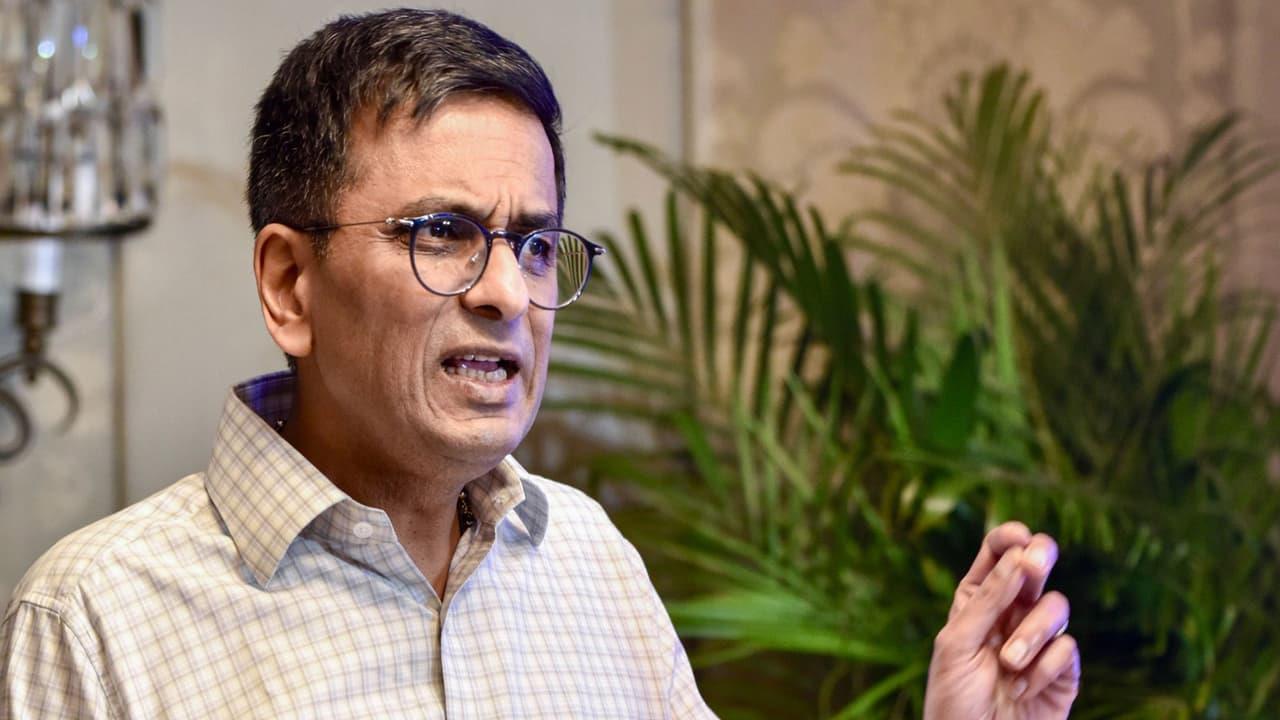'Ayodhya Case Not Decided On Basis Of Faith': Chandrachud Clarifies 'Babri Masjid Desecration' Remark
The Ayodhya case was decided not on the basis of faith but on evidence and legal principles, according to former Chief Justice of India DY Chandrachud. Chandrachud also clarified that his remarks that "erection of the Babri Masjid was a fundamental act of desecration," given to a media portal have been taken out of context and that led to a misinterpretation of his views on the Ayodhya dispute.
"What is happening on social media is that people lift one part of the answer and combine it with another part, completely removing the context," Chandrachud said at the India Today Conclave in Mumbai on Thursday while responding to the criticism light on the Supreme Court judgment on the Ram Janmabhoomi-Babri Masjid case, Chandrachud said that most people have not read the judgment and express opinions on social media platforms without reading the verdict document. "The judgment was 1,045 pages long because the case record was over 30,000 pages. Most people who criticise it have not read the judgment. It is easy to post opinions on social media without reading the full document," he said at the conclave.
"We must not forget what happened in history. These facts were part of the evidence we considered in the case," he added. Justice Chandrachud was part of the five-judge bench that cleared the way for the construction of a Ram Temple in Ayodhya. The former CJI also pointed out that on social media platforms, judicial independence has taken a binary route, and that's how people these days are labelling judges.
"Unless a judge decides every case according to a netizen's ideological view, they are not considered independent. Independence is also seen as only deciding cases against the government. But if you decide even one case in favour of the government, you are called pro-government," he said.
Chandrachud also listed examples of cases where the verdict was given against the government, including the electoral bonds case, the Aligarh Muslim University minority status case, and the Aadhaar verdict asked whether publicly admitting to prayer before such a significant ruling violated the constitutional principle of judicial neutrality, Chandrachud said,“Every day, judges enter a zone of conflict. I pray or meditate each morning to bring peace and equilibrium to my work.”
Chandrachud shared that he recited the Navkar Mantra each day while serving as Chief Justice and had visited various religious places, including a dargah during his time at the Allahabad High Court and a church during visits to Goa."My belief allows space for others to believe differently. There is nothing wrong in quiet reflection or prayer that helps a judge do justice with an even hand." He clarified that such personal practices are protected under the Constitution, which guarantees every individual, including judges, the right to belief," he said.
(Except for the headline, this story has not been edited by Asianet Newsable English staff and is published from a syndicated feed)
Legal Disclaimer:
MENAFN provides the
information “as is” without warranty of any kind. We do not accept
any responsibility or liability for the accuracy, content, images,
videos, licenses, completeness, legality, or reliability of the information
contained in this article. If you have any complaints or copyright
issues related to this article, kindly contact the provider above.
Most popular stories
Market Research

Stratx Launches Compliance-Aware Routing Protocol For Stablecoins, Rwas, And Cross-Border Settlement
- Kucoin Appeals FINTRAC Decision, Reaffirms Commitment To Compliance
- FBS Analysis Shows Ethereum Positioning As Wall Street's Base Layer
- VCUK Launches New Private Equity And Venture Capital Initiative With A Focus On Europe
- Zebu Live 2025 Welcomes Coinbase, Solana, And Other Leaders Together For UK's Biggest Web3 Summit
- Betfury Is At SBC Summit Lisbon 2025: Affiliate Growth In Focus
- Moonx: The Leading Crypto Trading Platform With X1000 Leverage And Unlimited Meme Coin Access






















Comments
No comment